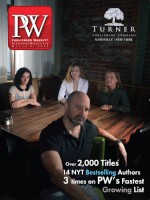In 2008 fresh out of college and bolstered by a lucrative DJing hobby, Neely-Cohen embarked on a novel. The result is Echo of the Boom, an apocalyptic story from the perspective of four larger-than-life teenagers.
The end of the world, four rebellious protagonists, verses about four horsemen—did you write an explicit allegory of the Book of Revelation?
Yeah. Anyone with a background in theology knows what I’m up to within the first five pages. I was actually drawn to the Bible for the same reason that I’m drawn to video games: both tend to depict characters dealing with a predestined fate.
And you wanted to explore that mode of storytelling?
I basically set out to replicate the medium of video games in words. When people think about what sets video games apart, they settle on interactivity. But there’s more to it! Think about repetition. The only way my characters gain experience, or make progress, is by going through the same motions again and again and again.
Right. Like Molly and her target practice, or Efram and his t-shirt prank—every day he wears a different politicized t-shirt to school. It’s an act of rebellion, and it keeps escalating.
Exactly. Video games are all about constant escalation. Unlike traditional story arcs, things can only ever get harder, bigger, and more complex. It’s like progressing through levels.
But only to a point. From the first chapter, there are constant allusions to impending doom. As a writer, is there any benefit to such heavy foreshadowing?
Earlier versions of the book were much more chaotic. The plot was, for lack of a better term, very Infinite Jest-y. Imposing “The End” definitely changed that. I think of foreshadowing as a control that prevents the book from spinning out in too many directions. My readers don’t have to worry about how Molly is going to apply to college, or what Chloe will be like when she’s 45 years old. Those questions just aren’t part of this world.
You’re 27 now. Do you feel like you’ve managed to stay true to a teenage perspective?
It’s been tricky. When I started writing this book I was 22, and there was much less of a difference between actual teenagers, and me. I worry that lots of my peers—writers in their 20s and 30s—assume teenagers are the same as they were a decade ago. They couldn’t be any more wrong.
How so?
Just think about how contemporary teenagers relate to violence. Bad things are happening in the world at an unprecedented rate. Thanks to technology, all of the violent news and imagery is at their fingertips.
Which of the four protagonists came most naturally to you?
I wrote a short story in college about a very early version of Steven. I was in Switzerland at the time, on Lake Geneva, and there was a commercial airliner flying low overhead. I thought to myself—and this is a horrible thing to admit—what would it look like if that airplane just fell out of the sky? That mindset became Steven.
How about the others?
In the first notebook I kept as a writer, there are three lines separated by hundreds of pages: “Children of Survivalists,” “Machiavellian Mean Girl,” and, from the Offspring song, “Original Prankster.” That’s Molly, Chloe, and Efram right there.
So your characters are explicit tropes. These are not your typical lovable teenage losers.
One interpretation of the story is that they’re all divine bad-asses. I did this intentionally, because I think that loveable characters are actually pretty overrated. Instead of writing a character who was just a jerk, or morally objectionable, I wrote four teenagers with tenuous relationships to reality.
The theme of technology definitely looms large. But on the sentence level, you stick to a pretty traditional format. No LOL here. How do you reconcile form and content?
When you grow up with technology, it’s no different than any other aspect of daily life. So making it stand out in the text seemed dishonest. While my editor was reading the Chloe narratives, she asked me to clarify when the characters were texting, when they were thinking, and when they were talking. I told her it couldn’t matter less. I reject the notion that technology is a threat to the publishing industry; any failure to entertain these themes is the fault of us, the writers.
And yet, Echo of the Boom is going to have video game tie-ins.
I truly believe that the literary world and the video game world have a lot to offer one another. They just need more excuses to get together! I’ve got six indie gamers working on games inspired by the book, and they’re going to be released on the book’s website.
So books and video games can benefit each other. It’s symbiotic.
Definitely. As soon as I get this project out from under me, I’m going to organize an annual literary gaming jam. I’ll put up a prize, get some judges, and say, “Okay, Moby Dick. Go.”



 Volume 261
Issue 09
03/03/2014
Volume 261
Issue 09
03/03/2014





